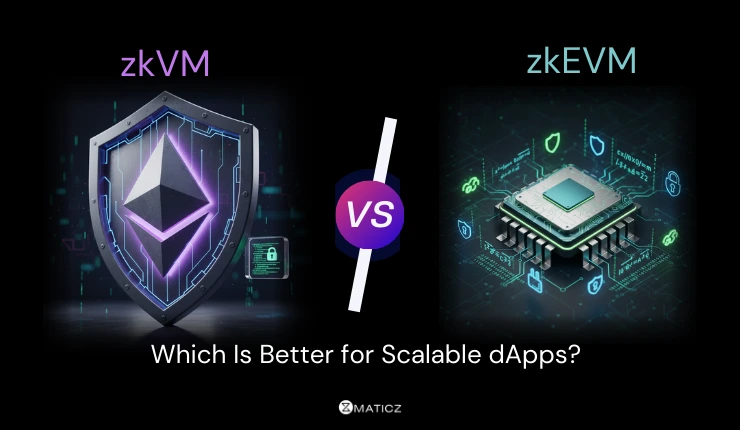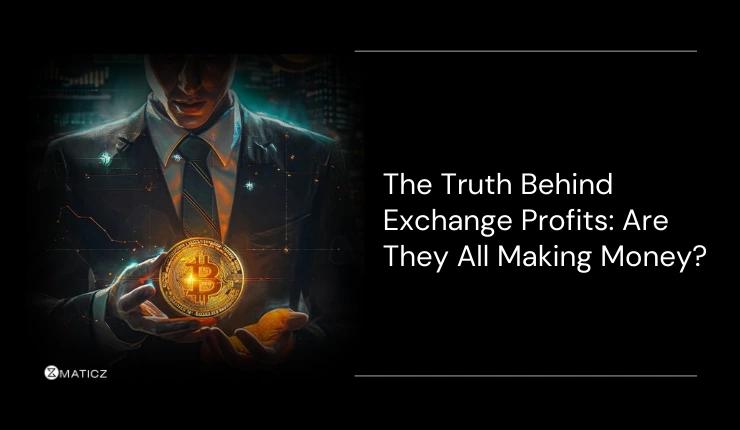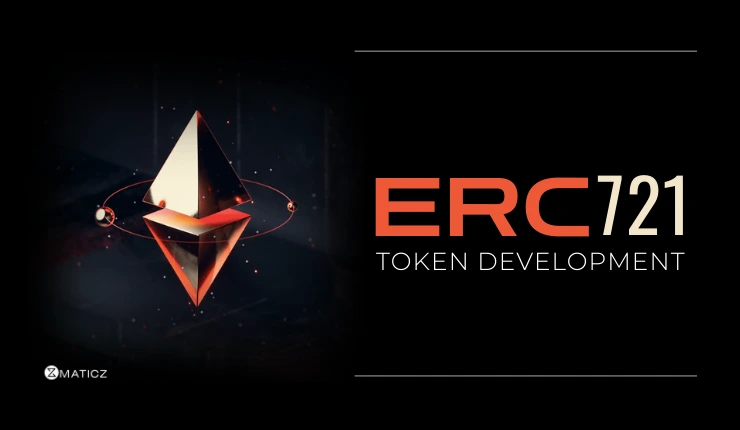Share Posts

All About Tokenized Real Estate
52
4234
103
The transformative power of blockchain technology is already reshaping many industries and how traditional business processes are carried out. Real estate is no exception either. The real estate industry is evolving rapidly and has recently started adopting this technology. It may find blockchain applications useful for various reasons, especially in creating distributed and dependable contracts with its smart contract opportunities.
In 2020, the global market for blockchain in real estate was worth $328.3 million, which is impressive. But it's even more amazing because experts think it will jump to $3,884.8 million by 2028. This huge increase means that blockchain is changing how the industry works, becoming a big part of innovation.
Tokenization has been around for quite some time since blockchain appeared. Real estate tokenization is one of the most popular use cases of blockchain. In General, tokenization involves the digitization of assets and securities that reduces the costs and increases the speed of creating, issuing, and exchanging assets.
In this blog, we delve deeper into what real estate tokenization is, how it works, its types, and how it has altered the domain. Continue reading the blog to get insights on the opportunities real estate tokenization offers.
What is Tokenized Real Estate?
Tokenized real estate refers to representing ownership of real estate properties as digital tokens using blockchain technology. The ownership rights of a property are recorded on a decentralized and secure digital ledger. Tokenized real estate enables fractional ownership through digital tokens.
Each token stands for a fraction of ownership in the real estate it represents. With fractional ownership, investors can buy and sell smaller parts of properties, making it accessible and liquid to invest in real estate.
Tokens that represent a particular real estate property can either be fungible or non-fungible. The choice between these two types of tokens depends on what is being tokenized. When a property or a group of properties needs to be considered as a whole, then non-fungible tokens are used. And when it comes to fractionalizing a whole property into parts, fungible tokens are used.
In today's world, buying or selling a property is not everyone's cup of tea. Because it involves a lot of intermediaries, legal documentation, and fees that everyone cannot afford. Real estate tokenization has solved all these issues and opened up numerous opportunities for people worldwide.
Growth and Demand of Tokenized Real Estate
Real estate tokenization is a new way of investing in property and is emerging as a game-changer in the world of real estate. Here are some numbers that show just how much it is taking off.
According to SpringerOpen research, the value of real estate tokenization hit $128 million in 2020, marking its initial foray into the market.
But it doesn't stop there. Experts predict that by 2025, the global market for real estate tokenization could reach a whopping $1.5 billion. That is a huge jump in just a few years.
Real estate tokens are becoming a big deal in the world of investments. From June 2021 to May 2022, they saw the fastest growth among all the different kinds of tokens, reaching a total market capitalization of $16.4 billion.
Looking even further ahead, analysts think that by 2030, the value of real estate assets that have been tokenized could hit a massive $1 trillion.
As the demand for real estate tokenization continues to surge, it's clear that this transformative trend is here to stay, paving the way for a more inclusive and dynamic real estate market in the years ahead.
How Does Tokenization Of Real Estate Work?
Tokenization of real estate assets comes in handy if an owner holds a property that is already built or to be built and wants to sell it, and needs some quick cash. Sometimes, nobody is willing to pay the full price the owner is asking for. Instead, they offer to pay less.
But the owner is not willing to sell it for a cheaper amount either. In such scenarios, utilizing a real estate tokenization platform becomes a viable solution. Owners submit property details to tokenize their assets into digital tokens backed by blockchain technology. These tokens can be fungible or non-fungible, depending on the property's nature.
Then, the property is divided into units, each representing a portion of its total value. Each part is represented by a digital token backed by blockchain. These tokens are put up for sale to people who want to invest. This way, even if someone can't afford to buy the whole property, they can still buy a piece of it.
The whole point of real estate asset tokenization is to make investing in property easier and cheaper. It speeds up the process of buying and selling real estate and makes it more affordable for everyone. Additionally, because it's split into smaller pieces, it's easier for lots of people to own a bit of the property. The smart contracts make everything clear and efficient, so there's less confusion in the buying and selling process.
Types of Tokenized Real Estate
Tokenized real estate is seen as a new investment opportunity, offering various types of tokens. Each type of tokenized real estate offers unique benefits and opportunities for property owners and investors. Let’s take a look at the four distinct types of real estate tokens.
Static Real Estate Token
Static real estate tokens represent ownership of a specific real estate property. As their name suggests, these tokens are modified only upon major changes. These tokens offer fixed ownership with predefined characteristics such as property measurements, location, type, past owners, and price history.
Dynamic Real Estate Token
In contrast to static real estate tokens, dynamic real estate tokens are updated even though slight changes are made to the property. It uses dynamic NFTs to represent the underlying real estate assets, which include features such as revenue sharing, profit distribution, or voting rights.
Fractionalized Real Estate Token
Fractionalized real estate tokens represent a fraction of a real estate asset. Using these tokens, users can own even high-priced real estate assets by purchasing a fraction of them. These can be either fungible utility tokens or Non-fungible tokens that enable the division of a single property into smaller, tradable units.
Cash Flow Real Estate Token
Cash flow real estate tokens offer regular income streams in the form of rents and business turnovers. Based on the performance of the property, investors get periodic distributions or dividends as passive income. These tokens provide stable returns from real estate investments.
How to Tokenize Real Estate Assets?
Tokenizing real estate assets is a complex process that involves various steps to make real estate more accessible, transparent, and efficient. Here is a step-by-step process to tokenize real assets effectively.
Choose The Blockchain
To start with the process of tokenizing real estate, it is important to select the appropriate blockchain for tokenizing real estate assets. Some of the popular choices are Solana, Ethereum, Avalanche, and Polkadot. While choosing the blockchain platform, consider factors like scalability, security, and cost-effectiveness.
Establish Legal and Regulatory Compliance
The next step is to ensure that your tokenization process complies with relevant legal and regulatory requirements. You can seek advice from legal experts who have a deep understanding of real estate and crypto technologies. They can provide insights on which regulations to follow and the necessary licenses or approvals to obtain. To hold a property title and issue the tokens, you need to set up a special purpose vehicle (SPV) and other legal entities.
Evaluate Asset
Next, you need to evaluate the real estate asset involved in the tokenization process. Every aspect of the property needs to be evaluated, such as its location, market value, legal status, and ownership. It can be done by inspecting the property, checking its background, and verifying its legal status.
Design Token
After evaluating the real estate properties, it’s now time to design digital tokens that represent the ownership of the property. You need to decide whether the tokens will be fungible or non-fungible and the characteristics they should have, including their supply, dividends, liquidity features, and voting privileges.
Developa Smart Contract
Developing smart contracts is the most crucial step in the real estate tokenization process. It involves creating smart contracts using appropriate programming languages to automate processes such as token issuance, transfer, and management of the tokens on the chosen blockchain platform. Before moving on to the next step, make sure the smart contracts are compliant with the required regulatory needs.
Launch a Token Offering
Once everything is set up, initiate a token offering by clearly defining the terms of the offering, including its price, token model, and investment conditions. Issue a specific number of tokens that are decided earlier during token design to attract those interested in owning the tokenized real estate asset.
Perform KYC/AML Checks
The next step is to implement Know Your Customer (KYC) and Anti-Money Laundering (AML) procedures in your token offering. It is used to check the identity and eligibility of investors participating in the token offering. These compliance protocols make sure that all transactions are legally valid and comply with necessary regulatory requirements.
Token Sales
Once all the KYC/AML checks have been completed, tokens are distributed through a token sale or an Initial Coin Offering (ICO). It's important to establish appropriate measures to conduct hassle-free token sales while remaining compliant with required legal regulations.
Enable Secondary Market Trading
After initial token distribution, list the real estate property tokens on secondary markets such as cryptocurrency exchanges or decentralized trading platforms to facilitate secondary sales and maintain liquidity. It can also influence the token prices based on the number of transactions occurring daily.
Manage Assets
To successfully manage tokenized real estate, handle property management tasks such as maintenance, leasing, and rent collections, which can be automated using smart contracts. Profits generated by the property should be distributed among the token holders.
Auditing and Reporting
Since real estate tokenization involves regular financial transactions, it is necessary to conduct regular audits and publish reports for token holders. Smart contracts should undergo thorough checks for any deficiencies, with errors being addressed promptly.
Benefits of Tokenized Real Estate
Tokenized real estate offers numerous advantages to investors and property owners alike. It makes investing in property easier, cheaper, and safer. Let’s explore the advantages of real estate tokenization in detail.
Increased Liquidity
Real estate tokenization offers increased liquidity by dividing real estate assets into smaller units through blockchain technology. Regardless of someone’s financial situation, they can buy, sell, and trade fractions of properties that are within their budget.
Fractional Ownership
Real estate tokenization facilitates fractional ownership of properties, which allows people to buy even small portions of expensive real estate properties that they might otherwise consider out of reach. This is particularly beneficial for high-value properties that may struggle to find suitable buyers in traditional markets.
Low Transaction Cost
Compared to traditional real estate, which includes brokerage fees, legal costs, and administrative charges, real estate tokenization cuts down on unnecessary transaction costs using automated processes and smart contracts.
Access to Global Markets
The tokenization of real estate assets allows anyone from anywhere to access global real estate markets, irrespective of different regions, asset types, and markets. It is no longer necessary for anyone to purchase real estate assets within their particular region or country.
High Transparency and Security
Tokenized real estate uses blockchain technology known for its unprecedented levels of transparency and security. Everything from ownership records to transaction details and property data is recorded in an immutable and decentralized ledger. It minimizes the problems associated with traditional real estate, such as forging documents.
Lesser Counterparty Risk
Through the tokenization of real estate assets, it is easy to avoid counterparty risks associated with real estate properties. Using smart contracts, transactions are automated with no intermediaries, which enhances trust among both parties involved.
End Notes
Tokenizing real estate offers a promising avenue to revolutionize property investment, making it more accessible, transparent, and efficient. By leveraging blockchain technology and smart contracts, investors can benefit from fractional ownership, enhanced liquidity, and streamlined asset management.
As the demand for real estate tokenization grows, there is a clear opportunity for developers to create platforms and services that cater to this emerging market. Whether you're a property owner looking to tokenize your assets or an investor seeking new opportunities, now is the time to explore the possibilities of real estate tokenization.
Maticz is a top real estate tokenization company that offers peerless real estate tokenization platform development services to match your expected standards and securities. We meticulously curate top-notch tokenization solutions leveraging advanced blockchain technology. Talk to our experts to get insights on real estate investment through innovative tokenization solutions.
Tap Into the Future
The latest insights, posts, and project updates - straight to your inbox.




